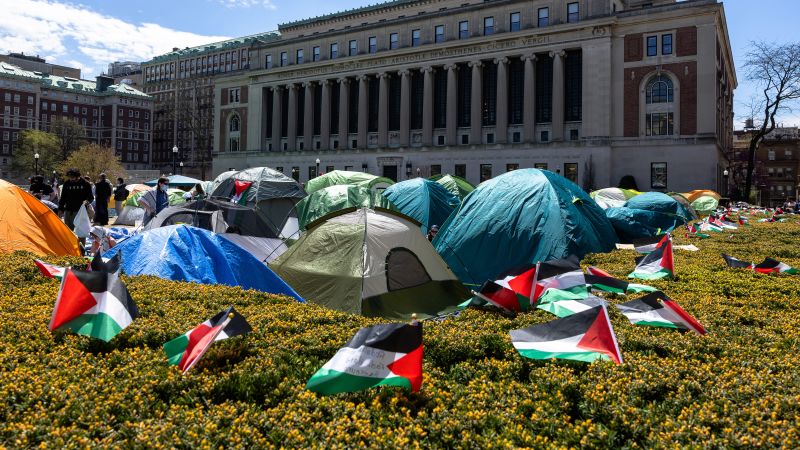College campuses across America have experienced unrest, clashes with police, and the shutdown of classrooms due to protests from pro-Palestinian demonstrators. The central demand of these protesters is for universities to divest from companies linked to Israel or profiting from the conflict with Hamas. Other common demands include disclosing investments, severing academic ties with Israeli universities, and supporting a ceasefire in Gaza. The protesters are adamant that they will not back down until their demands are met, and some also call for protection of free speech and amnesty for those arrested during the protests.
Some universities are facing additional demands from protesters, such as full amnesty for those arrested, no policing on campus, and an end to research on weapons used for genocide. At Columbia University, protesters are also calling for support for low-income communities, housing, and reparations. Additionally, students are calling for academic boycotts of Israeli universities and to sever ties with the New York Police Department. Divestment from Israel-linked investments is at the top of the list of demands from protesters, as they see it as a symbolic victory for justice and equality.
While some experts believe that universities could divest from Israel-linked investments, others argue that it would be viewed as hostile and threatening to many students, faculty, and staff. Some view the push for divestment as related to the Boycott, Divestment, and Sanctions (BDS) movement and criticize it as antisemitic in nature. There is also a debate on the effectiveness of divestment campaigns, as selling stock may result in losing influence over the company, with public companies being much larger than university endowments owning only 0.1% of public companies.
Despite the push for divestment, it is unclear if any universities will actually divest from Israel-linked investments. The debate surrounding divestment campaigns raises questions around the influence of universities and their role in social justice issues. The protests highlight the interconnectedness of financial interests and the need for transparency within university investments. Students participating in these protests believe that it is essential to raise awareness and send a message through divestment, even if the impact on the targeted companies may be minimal. The protests continue to draw attention and spark conversations surrounding the Israeli-Palestinian conflict and the role of universities in addressing social justice issues.


